Dissertation
Research Article
Review
Review Article
Issue Editorial Board

 Web
Web
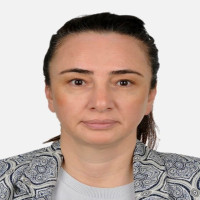



 Web
Web
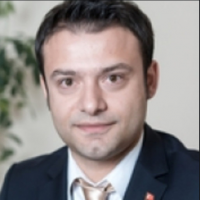


 Web
Web
Field Editor (Faculty of Economics and Administrative Sciences)
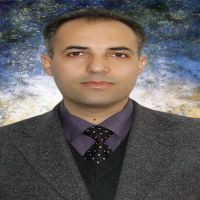


 Web
Web
İslami İlimler Alan Editörü
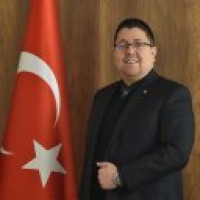
Reha Kılıçhan was born in Istanbul (1986) and grew up in Alanya (1993-2003). He received his bachelor’s degree from Erciyes University (2005-2009), his master's degree from Nevşehir University (2010-2012), and his Ph.D. in Tourism and Hotel Management from Mersin University (2012-2016). His interest in tourism and gastronomy stems from his work in the tourism industry since childhood. After gaining experience in Turkey, he worked in the United States at Cactus Pete’s Resort Casino in Nevada (2007), Four Seasons Resort Jackson Hole in Wyoming (2008), and Spectrum Fine Jewelry Exotic Gems in Alaska (2011). Following his work in the tourism sector, he joined Erciyes University Faculty of Tourism as a Research Assistant. Kılıçhan has worked in various departments within the same institution. He became an Assistant Professor in the Tourism Guidance Department in 2017, an Assistant Professor in the Gastronomy and Culinary Arts Department in 2019, and an Associate Professor in 2021. He was the Department Head of the Tourism Guidance Department (2018-2019) and the Gastronomy and Culinary Arts Department (2020-2023). Additionally, he has been involved in many academic and administrative commissions within Erciyes University and served as a Senate Member from 2017 to 2023. Kılıçhan has also lectured at institutions such as Cappadocia University and Nuh Naci Yazgan University. In addition to teaching, he has supervised and served on the jury of many theses. He has published numerous book chapters, articles, and conference papers, most related to tourism and gastronomy. Kılıçhan also served as the Chairman of the Board of Directors of the Kayseri Gastronomy and Culinary Arts Association (KAGAD) from 2021 to 2023. Currently, he serves as the Head of Gastronomy and Culinary Arts Department at Kayseri University, Faculty of Applied Sciences, and as the Head of Academic Board and Board Member of the Turkish Chefs Federation (TAFED). He is married and has two children.

 Web
Web
Field Editor for Child Development

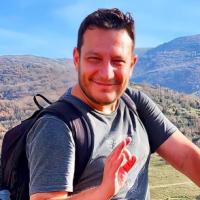
Issue Reviewers

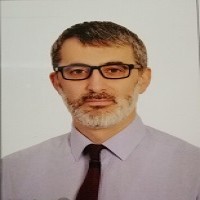
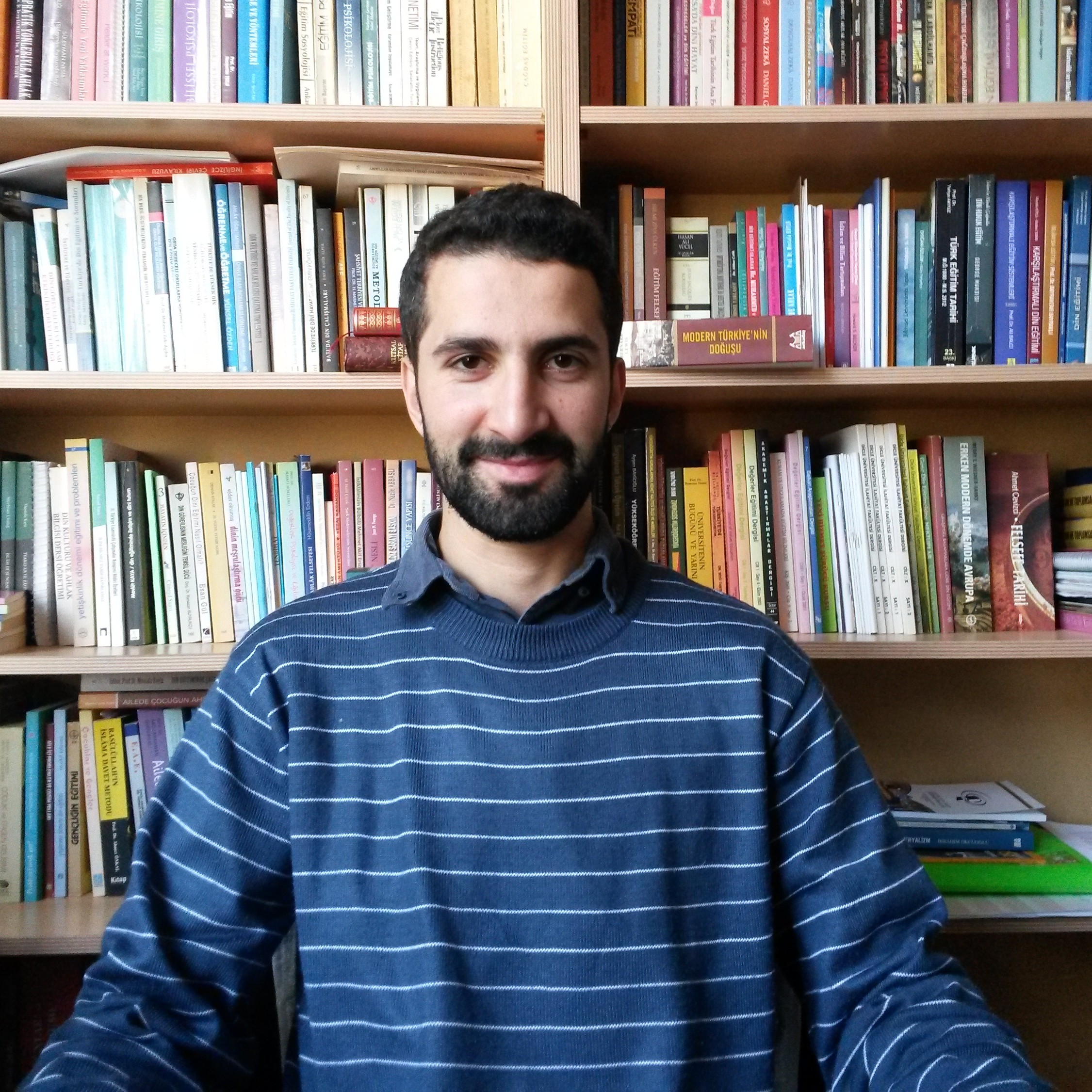

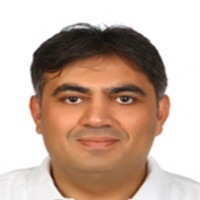
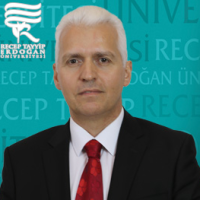
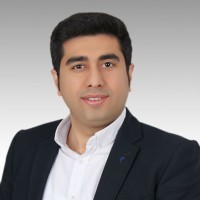
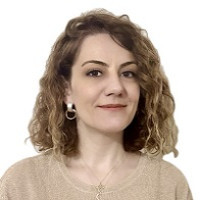

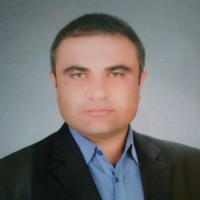
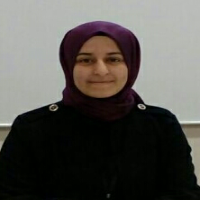


2014 yılında Atatürk Üniversitesi İlköğertim Bölümü’de doktorasını tamamlayan Mertol, Tübitak Doktora araştırma bursu ile New York St. John’s University’de Üstün Zekâlıların Eğitimi konusunda dünyaca ünlü isimlerden biri Güney Koreli Prof.Dr. Shooke Cho ile 8 ay NewYork’ta kalarak çalışmıştır. Kısa bir dönem MEB Özel Eğitim ve Rehberlik Genel Müdürlüğünde Özel Yeteneklilerin Geliştirilmesi Daire başkanlığı yapmıştır. KKTC Yakındoğu Üniversitesi’nde bir yıl süreyle Üstün Zekalılar Öğretmenliği bölümünde yarı zamanlı ders veren Mertol’un özel yeteneklilerin eğitimi ve dikkat ve algısı konusunda çeşitli yayınları bulunmaktadır. Özel eğitim ve özel yetenek konusunda iki bilimsel kitabın editörlüğünde bulunmuştur. Yurt içi ve yurt dışında farklı üniversitelerde ders vermeye eden Mertol, Üç doktora iki tezli yüksek lisans mezunudur. Farklılaştırma, Zenginleştirme ve Sosyal Bilgiler, coğrafya , okul öncesi alanlarında çalışmalara devam etmektedir. Multidisiplinler çalışmalara daha çok ağırlık veren Mertol, Halen Tokat Gaziosmanpaşa Üniversitesi Bölgesel Coğrafya alanında çalışmaktadır. Evli ve iki çocuk babasıdır.
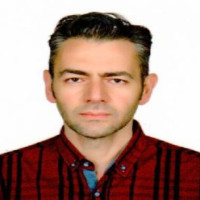
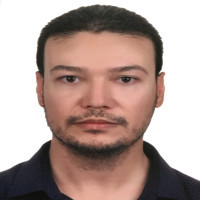
Dr. Bozkus is an associate professor working at Artvin Coruh University in Turkey. He completed a bachelor’s degree in science teaching and worked as a science teacher. He received a graduate education grant from the ministry of national education and a master’s degree in educational leadership from PennState University. He has got his Ph.D. degree in educational administration at Anadolu University in Turkey. His research interests are the professional development of teachers, school development, leadership, and organizational behavior.

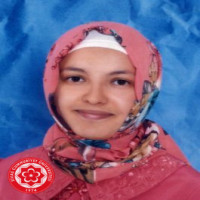
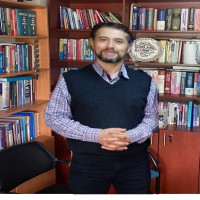






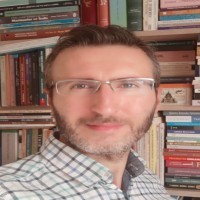
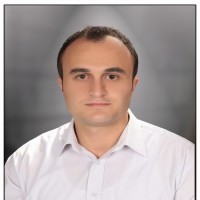


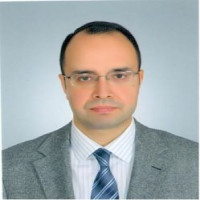

• Hz. Muhammed (sav)'den Hayat Ölçüleri – Dersler & İbretler, Damla Ofset, Konya 2008.
• Samsat’ta Bir Yıldız - Sahâbe Safvân B. Muattal, Damla Ofset, Konya 2010.
• Sekülerizm ve Din, TURAN-SAM Uluslararası Bilimsel Hakemli Dergisi 11/41 (2019), 314-318. http://dx.doi.org/10.15189/1308-8041
• Karl Mannheim’in Bilgi Sosyolojisi, International Social Sciences Studies Journal 5/30 (2019), 1085-1091. http://dx.doi.org/10.26449/sssj.1323
• Değişim Sürecinde Alevilikte Dini Otorite-Adıyaman Dedeleri Örneği, Berikan Yayınevi, Ankara, 2020.
• Adıyaman İlinin İnanç ve Kültür Mozaiği-Adıyaman Alevileri Örneği- ''Tarihte Adıyaman, Devlet, Toplum ve Kültür, Edit. Kazım Kartal vd.'' Sonçağ Akademi Yay. Ankara 2020.
• Ali Büyükşahin Dede İle Alevilik Ve Dini Otorite Üzerine, International Journal Of Social, Humanities and Administrative Sciences, Yıl: 2021, 7(38):578-591. http: //dx.doi.org/10.31589/JOSHAS.578
• Salgın Döneminde İbadetler, Covid 19 Örneği, Sosyal Mesafe Döneminde Din, Ed. H. Türkyılmaz, Konya: Çizgi Yy. 2021, 219-241.
• Samsat Yöresi Halk İnanışları, International Academic Social Resources Journal, (e-ISSN: 2636-7637), Year: 2021, 6/24: 643-657. http://dx.doi.org/10.31569/ASRJOURNAL.230
• Din Ve Otorite Kavramları Bağlamında Sünnilikte Dini Otorite, İlahiyat Alanında Araştırma ve Değerlendirmeler, Edit. F. Rençber, Y. ARI vd., 2021/Mayıs, Ankara: Gece Kitaplığı, 2021, 163-188.
• Toplumsal Değişim ve Din, Asya Studies 5/16 (Haziran 2021), 131-142. https://doi.org/10.31455/asya.958362
• Sivil Toplum Kuruluşlarının Sosyo-Kültürel Ve Dini Hayattaki Rolü, International Social Mentality and Researcher Thinkers Journal 7/49 (Ağustos 2021), 2004-2013. http://dx.doi.org/10.31576/smryj.1018
• Adıyaman Yöresi Halk İnanışları: Sihir, Büyü Ve Cin İnanışları Örneği, Halk İnanışları Ve Uygulamaları, ed. Niyazi Akyüz - İhsan Çapcıoğlu, Ankara: Nobel Yay., 2021, 589-608.
• Değişim Sürecinde Alevilikte Dini Otorite; Adıyaman Dedeleri Örneği, (Ed. Prof. Dr. Bayram Dalkılıç), 2. Baskı, İstanbul: İlmi & Asitan Yayınları, 2022.
• Öteki’nin Algılanışı: Alevilik Ve Aleviler, Türk Kültürü Ve Hacı Bektaş Veli - Araştırma Dergisi, c. 104 (2022), 399-414. https://doi.org/10.34189/hbv.104.022
• Üniversite Gençliğinin Din Algısı (Eskişehir Örneği), (Alperen Cemal Özgüven ile birlikte) Darulhadis İslami Araştırmalar Dergisi 4 (Haziran 2023), 143-155.
• Doja, Albert. “Manevı̇ Teslimı̇yet: Bektaşilik Tarihinde Yoldaşlıktan Hiyerarşiye”. çev. Yılmaz Arı. Uluslararası Dorlion Akademik Sosyal Araştırmalar Dergisi (DASAD) 1/1 (June 2023), 93-130. https://doi.org/10.5281/zenodo.8075984
• “The Role And Functions Of The Family in the Religious Socialization Process”. Internatıonal Izmir Congress On Humanities and Social Sciences Proceedings Book. Bzt Akademi Yayınevi, 2023. 268-286.
"Sosyolojik Perspektiften Yeni Dinî Hareketlere Bakış", UBSDER 6th International Congresses, Ankara, Türkiye, 18-20 Ağustos 2023.
"Sosyal Değişme Olgusuna Sosyolojik Bakış", UBSDER 6th International Congresses, Ankara, Türkiye, 18-20 Ağustos 2023.
• “The Basic Functions of the Family as an Important Building Block of Society”. 10th International Congress on Humanities and Social Sciences in a Changing World Proceedings Book. Bzt Akademi Yayınevi, 2023. 158-163.
• “Sosyalleşme Sürecinde Aile: Dinî Rol ve İşlevleri” İLSAM Akademi Dergisi. 3/2 (Ekim 2023), 199-216. https://doi.org/10.5281/zenodo.10054714
• Biz ve Öteki, Multidisipliner Bir Çalışma, (ed. Yılmaz ARI), İstanbul: Kitap Dünyası, 2023.
• Bir İnsanlık Suçu ve Soykırım Trajedisi: İsrail'in Filistinlilere Uyguladığı Devlet Terörü Nedeniyle Yargılanması Gerektiğine Dair Bir Değerlendirme. Darulhadis İslamî Araştırmalar Dergisi, 5 (2023), 22-44.
• A Crime against Humanity and the Tragedy of Genocide: An Evaluation That Israel Should Be Sued for State Terrorism against Palestinians. çev. Mustafa Turan. Uluslararası Dorlion Akademik Sosyal Araştırmalar Dergisi (DASAD) 1/2 (Dec. 2023), 445-465. https://doi.org/10.5281/zenodo.10429568
• “Aile Kurumunun İşlevleri Nelerdir ve Neden Önemlidir? Sosyolojik Bir Araştırma”. İlahiyat Alanında Uluslararası Araştırma ve Değerlendirmeler - Aralık 2023. ed. Kasım Ertaş., Ankara: Serüven Yayınevi, 2023,127-139.
“Gölgede Kalan Yıkım: İsrail’in Devlet Destekli Terörü Ve Soykırım Trajedisi Tarihi”. Eskişehir Osmangazi Üniversitesi İlahiyat Fakültesi Dergisi 11/2 (Eylül 2024), 639-665. https://doi.org/10.51702/esoguifd.1491769
“Cumhuriyet Döneminde Toplumsal Değişim ve Din: Etkileşimler ve Dönüşümler, (Abdil Akduman ile birlikte). Journal of Analytic Divinity8/2 (December 2024), 252-273. https://doi.org/10.46595/jad.1575005.
"Toplumsal Bütünleşme Faktörü Olarak Dinî Semboller: İslam’da Ezan ve Camii Sembolleri" (Hatice Kırkgül ile birlikte), Sultan İlahiyat Araştırmaları Dergisi (SİAD), 2024, cilt: II, sayı: 2, s. 106-128. https://zenodo.org/10.5281/zenodo.14361103
"The Overlooked Destruction: A History of Israel’s State-Sponsored Terror and Genocide Tragedy”, (Trans. Mustafa TURAN). Uluslararası Dorlion Akademik Sosyal Araştırmalar Dergisi (DASAD) 2/2 (Aralık 2024), 287-315. https://doi.org/10.5281/zenodo.14173718
"Humanitarian Crisis in Syria: War, Oppression, and the Struggle to Return Home", 14th International İstanbul Scientific Research Congress, İstanbul, Türkiye, 27 Aralık 2024, 769-781.
"Ruthless Genocide in Gaza: The Deepening of Historical and Systematic Violations", 14th International Başkent Congress on Social, Humanities, Administrative, and Educational Sciences, Ankara, Türkiye, 13 Aralık 2024, 1373-1380.
Islamophobia: A Multidisciplinary Study, (ed. Yılmaz Arı). BZT Turan Publishing House, Delaware, 2024.
Kur'ân'da İnşa Süreci, (ed. Yılmaz Arı). Kitap Dünyası, İstanbul, 2024.
"Islamophobia as a Global Phenomenon: Sociological Depth and Contemporary Reality", Islamophobia: A Multidisciplinary Study, (ed. Yılmaz Arı). BZT Turan Publishing House, Delaware, 2024, 1-30.
"Çağdaş Toplumun Manevi Yüzü: Yeni Dinî Hareketlerin Sosyolojik İncelemesi", Ana Konularıyla Din Sosyolojisi, (ed. Emine Öztürk, Mehmet Cem Şahin), Akademisyen Kitabevi, Ankara, 2024, 383-435.
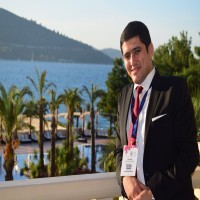
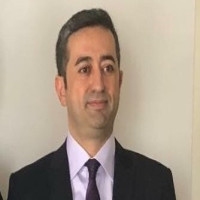




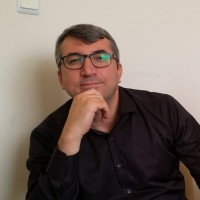
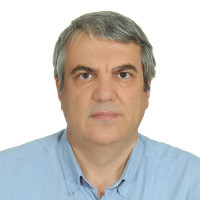
Aim & Scope
Kayseri University Journal of Social Sciences aims to create scientific contributions by carefully evaluating qualified and original studies that are in accordance with scientific norms and scientific ethics, and to be among the leading periodicals by being preferred in the field.
Kayseri University Journal of Social Sciences publishes conceptual theoretical and applied research in all fields of social and humanitarian sciences.
Author Guidelines
1. Our journal publishes articles in Turkish and English. In articles, the Turkish abstract must be given at the beginning of the text and the English title and abstract must be given below.
Articles sent for publication must be original works that have not been published or sent for publication before.Authors must fill out the "Copyright Transfer" form in their signed petitions stating that their articles are original works that have not been published or sent for publication before. The works of authors who do not include the Copyright Agreement in their article application will not be included in the evaluation process.
2. Our journal does not charge any fees to the authors during the evaluation, preparation and publication of articles.
3. The identity information of the author(s) should not be directly or indirectly mentioned anywhere in the article. Information such as whether the study was produced from a thesis, supported by a project, or presented at a congress will be included during the editing phase -if the article is accepted-. The similarity rate of the articles to be sent for evaluation should be at most 30%, obtained by the author using any plagiarism program. After the conformity and similarity checks are carried out during the pre-control process, they will be sent to the referees for evaluation. A positive opinion from at least 2 referees is required for the articles to be accepted for publication. Articles should not exceed 25 pages.
4. References to sources should be made in parentheses within the text instead of footnotes.
5. Explanations other than the reference to the source should be given on a separate page at the end of the article under the title "Notes", before the References.
6. Sources used, if any, should be given on a separate page under the title “REFERENCES” after the notes.
7. A space should be left after each punctuation mark.
The article should be prepared using the article template, in accordance with the format requirements in this template, and according to the rules on our Turkish page and APA 7.
Ethical Principles and Publication Policy
Kayseri University Journal of Social Sciences is committed to implementing publication ethics at the highest standards and to complying with the following principles of the Declaration of Publication Ethics and Misconduct. This declaration has been prepared based on the recommendations and guidelines developed for journal editors by the Committee on Publication Ethics (COPE), Council of Science Editors (CSE), World Association of Medical Editors (WAME) and International Committee of Medical Journal Editors (ICMJE).
• Manuscripts submitted to the journal for publication should not have been previously published in another journal (including abstracts presented at scientific meetings and published in full text) or should not have been simultaneously submitted to any journal for publication.
• Articles sent to the journal are subject to a double-blind peer review process by being reviewed by an Editor and at least two referees. The right is reserved for the submitted articles to be reviewed for plagiarism at any stage using software for the purpose. For this purpose, articles that are not compliant with the standards and that include unauthorized citations or fabricated data, forgery (fabrication or manipulation of tables, figures or research data) and inappropriate use of human or animal material in the research will not be published in the journal. This rule is also valid in cases where non-compliance with the standards is detected at the post-publication stage and requires the withdrawal of the article from publication. Our journal reminds us of its responsibility to report cases of plagiarism or double publication suspicions, as required by publication ethics.
The publication processes implemented in KAYU Journal of Social Sciences form the basis for the development and distribution of knowledge in an impartial and respectful manner. The processes implemented in this direction directly reflect on the quality of the work of the authors and the institutions that support the authors. Peer-reviewed studies are studies that embody and support the scientific method. At this point, it is important for all stakeholders of the process (authors, readers and researchers, publisher, referees and editors) to comply with the standards regarding ethical principles. Our journal expects all stakeholders to carry the following ethical responsibilities within the scope of publication ethics.
Some of the actions considered to be contrary to scientific research and publication ethics:
Price Policy
Our journal does not charge any fees to authors during the evaluation, preparation or publication of articles.
The journal publishes theoretical and applied articles that make original contributions to the literature in every field of social sciences.
Authors can contribute to the journal with their Turkish and English studies prepared in accordance with our journal's writing rules. Our journal does not charge any fees to authors during the evaluation, preparation and publication of articles.
Please use the article template for your article.
All legal responsibilities of the articles in the journal belong to the authors.
Kayseri University Journal of Social Sciences is licensed under the Creative Commons Attribution-NonCommercial 4.0 International License (CC BY-NC 4.0).
Under this license, all content published in the journal may be used under the following conditions: Published works may be copied, reproduced, shared, distributed, adapted, translated, and used to create derivative works (such as translated versions or reorganized content), provided that these uses are for non-commercial purposes and proper attribution is given.
https://creativecommons.org/licenses/by-nc/4.0/
Terms of the CC BY-NC 4.0 License:
Attribution (BY): Users must give appropriate credit to the original author(s), provide a citation, and include a link to the license.
If changes are made, they must also be clearly indicated. Attribution must include the author's name, the title of the work, a link to the license, and any modification details if applicable.
NonCommercial (NC): The content may only be used for non-commercial purposes. It may not be used in paid publications, advertisements, or in any context that generates direct financial gain.
License Terms: Derivative works are not required to be licensed under the same terms (ShareAlike is not mandatory). However, all users must still provide attribution and comply with the non-commercial use requirement.
Contact information
E- Mail: sosder@kayseri.edu.tr
Tlf: : +90 352 432 38 38
Fax: +90 352 504 38 37
Adres: Kayseri Üniversitesi Rektörlüğü, Mevlana Mah. 15 Temmuz Yerleşkesi, No: 5, 38030 Kayseri, Türkiye.


